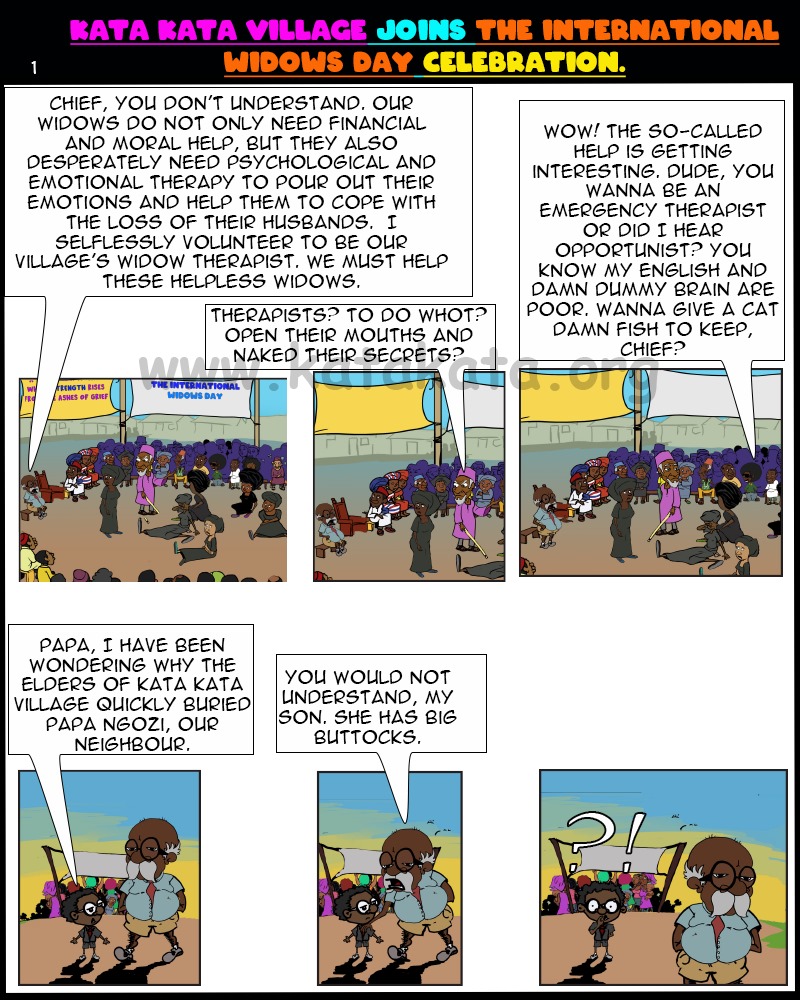Celebrating the International Widows Day.
No one can live forever; it is common knowledge that one day, we will leave this planet. It is not a matter of if but when; hence, we may ask the most obvious questions: what happens when you depart? What consequences does your death have on those they left behind? How far are they coping with your demise? Are they being taken care of? These are some of the lingering questions we need to ask ourselves as a people or society because, one way or another, we are directly or indirectly affected by the actions, inactions, and situations of others. Call it the Ubuntu mindset, if you like.
As we celebrate
the global anniversary of International Widows' Day, which takes place annually
on 23 June, we must raise awareness about the challenges widows face
worldwide. Think of poverty, discrimination, social isolation, loneliness,
financial malady. In cultures where the male gender is expected to be the
breadwinner in the family, while the wife is subjugated to an appendix of the
husband, as such, she is not likely to be financially independent, the death of
the male partner brings enormous financial pressure to the family, subjecting
the wife to financial destitute.
But even when the
financial vacuum is filled and taken care of, sometimes, we must realise that
money is not always everything in life; it can hardly solve all problems. A
widow might be financially secure, but her biggest challenge may come in
adjusting her life to fit the new reality. Sometimes, even staying with family
members and receiving financial support hardly alleviates the sorrow and
loneliness. Depending on the closeness and the level of her relationship with
her demised husband, some widows find it extremely difficult to relate to
others or even reveal the impact of the loss of their husband, which may lead
to loneliness. This emotional suppression may trigger dangerous health
challenges, which might demand immediate psychological and emotional therapy.
In most cases,
widows desperately need such help. In developed countries, such psychological
help is available, but what happens to millions of widows in desperately
developing countries? What is the fate of millions of others who might not have
the financial muscle to pay for such an expensive therapy? Every society must
wake up to the challenge.
Sadly, in most
cases, our various societies hardly pay attention to what these helpless widows
go through socially, emotionally and financially.
Of course, the
fact that many widows carry their cross and face the challenges squarely hardly
means they cope easily with their sudden new realities. Hence, we need to put
contingency plans in place before the situation gets worse. Our strength lies
in our unity and ability to act as an allied force.
Surely, money and other kinds of help cannot resurrect death, but they can help in many ways. Hence, we must start somewhere. From genuinely showing that we mourn with the widows, we must take every necessary step to minimise their boresome, loneliness, sorrow and financial challenges. More than that, we must provide much-needed psychological help and, most importantly, take all necessary steps not to abuse or take advantage of their vulnerabilities. Are those He-goats in Kata Kata Village and beyond listening?

